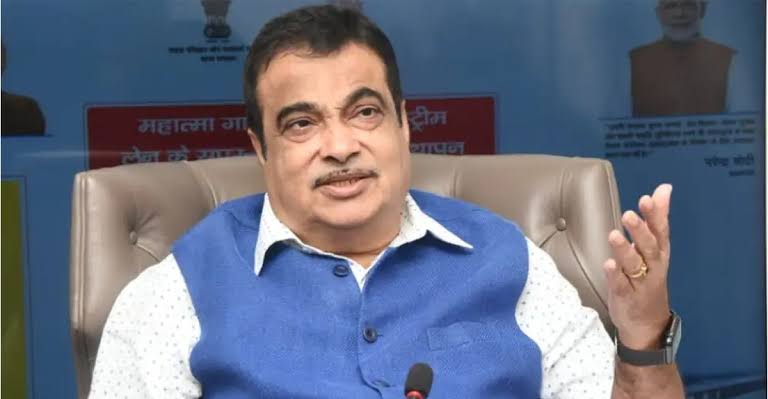Nitin Gadkari Announces Electric Highway Between Delhi-Mumbai; Know What It Is And Its Specialty

Mumbai, 13th July 2022: After giving the green signal to rules like 6 airbags and the India NCAP test, Union Road Transport and Highways Minister Nitin Gadkari has given the signal that advanced highways are being constructed all around the country starting from Delhi-Mumbai.
Now the government has taken a new step in a forward direction.
Nitin Gadkari told at an event of the Hydraulic Trailer Owners Association that the government is planning to build an electric highway between Delhi and Mumbai. He said that trolley buses and trolley trucks can also be run on this highway.
What is an Electric Highway?
A highway on which electric vehicles move is called an electric highway. Electric wires are installed on these highways to run certain electric vehicles. This wire is connected to the engine of the train through an arm, due to which the entire train gets electricity. Similarly, electric wires will also be installed on the highway. Vehicles running on the highway will get electricity from these wires. Charging stations are also available at short distances to charge the electric vehicle on such highways. Overall, these electric highways are designed according to electric vehicles.
Trolley trucks will also run along with trolleybuses. Nitin Gadkari had told last year that the country’s first electric highway would be built between Delhi and Jaipur. This 200-km-long highway will be built on a new lane along with the Delhi-Mumbai Expressway. This lane will be completely electric. Only electric vehicles will be run in this. Once fully ready, it will also become the country’s first electric highway. This electric highway is being developed in collaboration with Swedish companies. Trolley trucks will also be run along with trolleybuses on this electric highway. A trolleybus is an electric bus that is powered by an overhead electric wire through which it travels.
3 types of technology are used worldwide for electric highways.
Because Swedish companies are working on electric highways in the country, it is believed that Sweden’s technology will be used here as well. Sweden uses pantograph technology, which is also used in trains in India. A wire is placed over the road, in which electricity flows. This electricity is supplied to the vehicle through pantograph technology. This electricity directly powers the engine. Or charges the battery in the vehicle.
Conduction and induction technology is also used on electric highways. In the conduction model, the wire is installed inside the road, on which the pantograph moves while colliding. Whereas, there is no wire in induction technology. In this, electricity is supplied to the vehicle through electromagnetic current. Hybrid engines are used in electric vehicles in Sweden and Germany. This type of engine can be run on electricity along with petrol and diesel.
What is a Hybrid Car?
Two motors are used in a hybrid car. It has the first petrol engine which is like a car with a normal fuel engine. The other is an electric motor engine, which you get to see in electric vehicles. The power of both of these is used to drive the vehicle. When the car runs on the fuel engine, then its battery also gets power, due to which the battery gets charged automatically. It comes in handy like an engine as extra power at the time of need.
Is it possible to drive a personal vehicle on an electric highway?
You will be able to use your personal electric vehicle on the electric highway. To charge these e-highway electric vehicles, charging stations are installed at a distance. That means you will not have to worry about charging your car. There are charging stations with powerful chargers on these e-highways. Where your electric vehicle will be charged in 10 to 15 minutes. The special thing is that dozens of electric four-wheelers can be charged simultaneously at these charging stations. However, you will not get permission to drive a normal vehicle on these highways.
Benefits of Electric Highway
Nitin Gadkari had said that the Electric Highway will reduce the logistics cost by 70%. In particular, this will significantly reduce the transportation cost. This will also have an effect on item prices. Items will also be cheaper due to reduction in transportation cost.
These will be eco-friendly highways. Electricity will be used to run vehicles, which will be cheaper than petrol and diesel. This will also not cause any damage to the environment. Dependency on petrol and diesel will also be reduced.
Abhijit Sinha, Project Director, National Highway for Electric Vehicles, said that “a private cab fleet will be stationed at every charging station in 5 minutes. There will be many benefits if a person has hired a car with a driver or for self-driving through e-cab service. A fully charged car of the same model will be available from the charging station only after a 5 minute stop for a bio brake. Under the battery swapping policy, the battery can be changed at these stations. That is, you will not have to wait for charging when the battery is exhausted. The charging stations are being built on the PPP model.”





